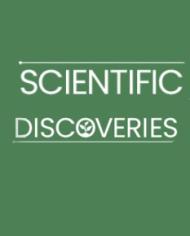ARS researchers studied the transmission dynamics of avian influenza virus in disease outbreaks of both commercial and backyard flocks.
Search Articles
-
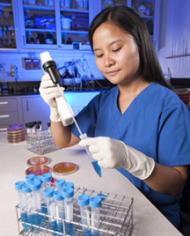
PDF's of entire publications from previous years for fiscal year 2015-2024.
Apr 28, 2023 -
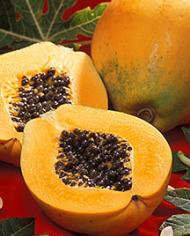
ARS researchers found that two disinfectants could reduce, Salmonella on papayas.
Mar 23, 2021 -
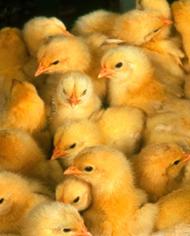
ARS scientists conducted research to determine if America’s agricultural system is safe from COVID-19.
Mar 21, 2022 -

ARS scientists conducted research to determine if America’s agricultural system is safe from COVID-19.
Mar 11, 2022 -

ARS scientists conducted research to determine if America’s agricultural system is safe from COVID-19.
Mar 10, 2022 -
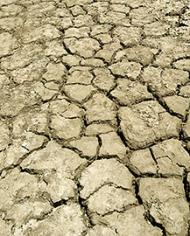
ARS researchers and the USDA Southwest Climate Hub developed a new set of tools aiming at helping farmers, ranchers, and other stakeholders plan for serious environmental challenges.
Mar 02, 2022 -
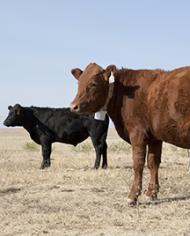
Scientists are investigating the effects of land use management practices on wildfires as part of USDA’s Long-Term Agroecosystem Research program.
Mar 25, 2021 -

ARS researchers collaborated with scientists from the University of Florida to develop a simpler method to sterilize mosquitoes.
May 03, 2022 -

Highlighting the achievements of Mark Williams, Douglas Gladue, Matias Vanotti, Joan Lunney, Joon Park and Archie Tucker.
Apr 03, 2023 -

Scientists have assembled a collection of yeasts that convert agriculture waste into bio-oil, which is then easily converted into biodiesel or renewable jet fuel.
Apr 18, 2023 -
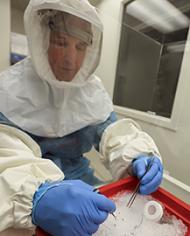
ARS researchers collaborated with Kansas State University to reduce the potential consequences of the Japanese encephalitis virus entering the United States.
Apr 18, 2023 -
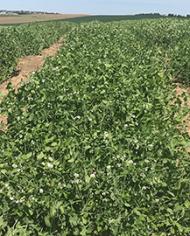
ARS researchers recently developed and released three new pea cultivars that can be grown in the cooler months.
Apr 05, 2023 -
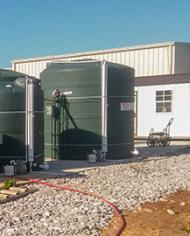
ARS scientists are sounding out a new way to improve biogas production and help the environment.
Apr 28, 2023 -
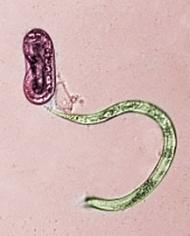
In recent years, farmers in the southeastern United States have struggled with the invasive guava root-knot nematode.
Apr 26, 2023 -
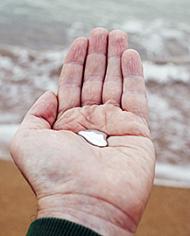
Researchers developed a portable, dual detection biosensor that enables on-site testing of samples for mercury and displays the results on a smart phone.
Apr 26, 2023 -
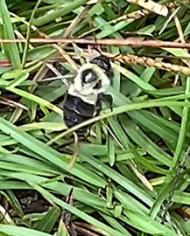
ARS researchers discovered that bees collect pollen from centipedegrass flower heads.
Apr 25, 2023 -
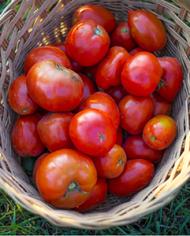
Scientists have identified a tomato gene that's responsible for the softening process in the fruit as it matures, and found a way to inhibit the gene, keeping tomatoes firmer, longer.
Apr 24, 2023 -
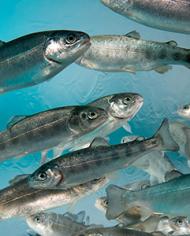
Scientists found that fish raised in reused water faced significantly higher mortality rates that those grown in tanks supplied with fresh spring water.
Apr 20, 2023 -
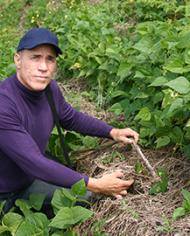
Scientists investigated practices that might help smallholder farmers increase sustainability of their lands and adapt to a changing climate.
Apr 20, 2023 -
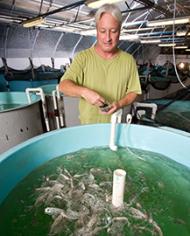
Researchers determined that clam byproducts and hemp fibers meet the nutritional needs of farmed fish Florida pompano.
Apr 18, 2023 -
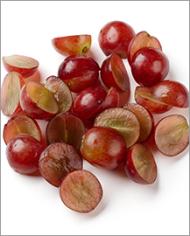
Researchers have teamed up with wine growers to determine whether waste from wine grapes can be converted into healthy food components.
Apr 18, 2023 -
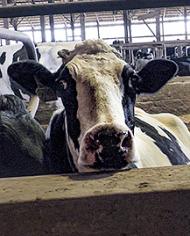
ARS scientists collaborated to sequence and assemble the genomes of the ticks that cause cattle fever and anaplasmosis.
Apr 17, 2023 -
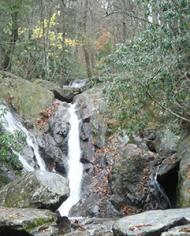
ARS researchers examined rhododendron plants growing in native stands, looking for microbes that cause diseases that affect other plants.
Apr 17, 2023 -
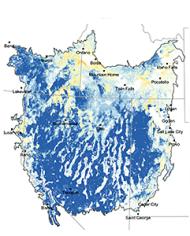
Researchers developed a forecast tool to determine which areas have the highest probability of a large rangeland fire.
Apr 13, 2023 -
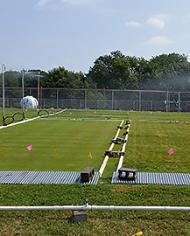
ARS researchers investigated whether vegetative filter strips could remove excess nitrogen from runoff.
Apr 05, 2023 -

ARS scientists are studying the potential health risks of perfluorooctanoic acid (PFOA).
Apr 04, 2023 -
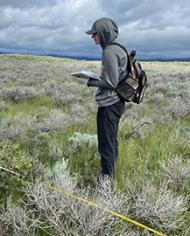
Scientists are taking grazing to a new level by developing sheep that prefer or tolerate the bitter taste of plants.
Apr 04, 2023 -
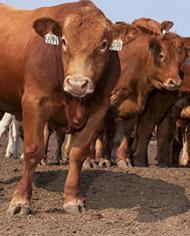
Changes in cattle rumen associated with liver abscesses remain well after the early development of rumen acidosis caused by high corn diets.
Mar 16, 2023 -
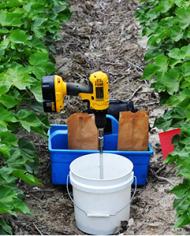
Researchers have developed a new, easier way to find the answer to the question, "How much carbon is stored in soil?"
Mar 14, 2022 -
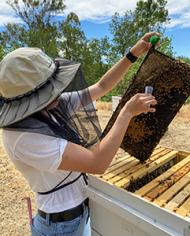
A long-term honey bee monitoring network helps researchers to better understand colony performance and survivorship over multiple seasons.
Apr 19, 2022 -
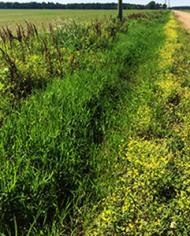
ARS researchers found that keeping plants in drainage ditches can benefit the aquatic ecosystem
May 02, 2022 -
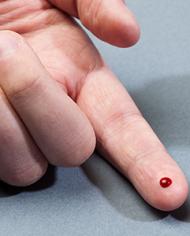
Research at the ARS Western Human Nutrition Research Center revealed that consuming a new type of wheat may help control blood sugar.
Apr 13, 2022 -
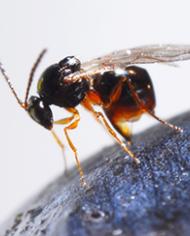
ARS and University of California-Berkeley scientists are evaluating the potential of a parasitoid wasp to control the fruit fly, spotted wing drosophila.
Apr 12, 2022 -
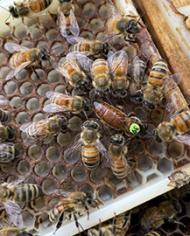
ARS researchers are studying genetics and breeding to make honey bees more resilient.
Apr 06, 2022 -

Highlighting the achievements of Steven Kappes, Moon Kim, Autar Mattoo, Steven Mirsky, Sherry Hunt, William Hart-Cooper, Amy Vincent, Hyun Lillehoj and Marilyn Warburton.
Apr 05, 2022 -
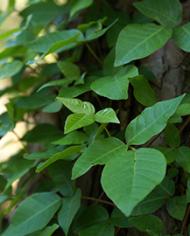
Scientists have developed and are testing a derivative of urushiol that could help desensitize the skin of individuals susceptible to poison ivy dermatitis.
Mar 15, 2022 -
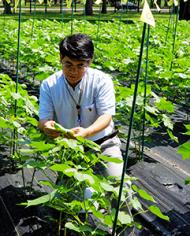
Scientists are producing new strains of cotton that offer both quality and abundance.
Mar 14, 2022 -

ARS-funded researchers investigated how the content of oligosaccharides differed in milk produced by women with normal weight, overweight, or obesity.
Mar 14, 2022 -
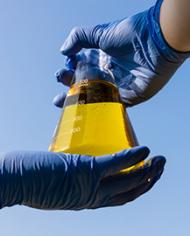
ARS scientists are investigating ways to ensure agriculture can produce renewable fuels that will help diminish our carbon footprint.
Mar 14, 2022 -
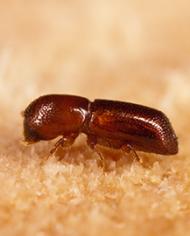
ARS scientists are combatting pests and diseases affecting avocado production in the U.S.
Mar 14, 2022 -
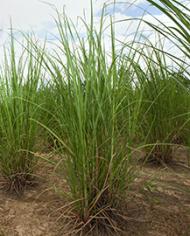
Scientists conducted research on how farm management practices could maximize elephant grass’s utility as a bioethanol feedstock.
Mar 10, 2022 -
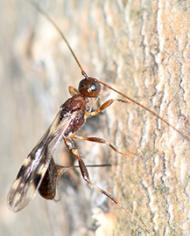
In the search for natural enemies of the emerald ash borer, one promising candidate is a tiny 5-7 millimeter-long parasitic wasp that lays its eggs on EAB larvae.
Mar 10, 2022 -
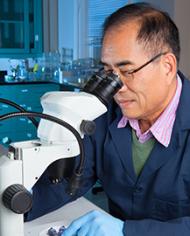
ARS scientists found that methyl benzoate can repel, and even kill, other insects and pests, including the spotted wing drosophila fly.
Mar 09, 2022 -
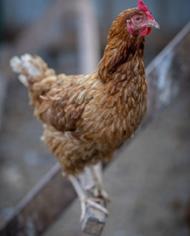
ARS researchers in Temple, TX, employed adaptive nutrient management to determine preferred balances on farms.
Mar 08, 2022 -

A stabilizer created using corn starch and vegetable oil opens the door to all sorts of useful food-grade and industrial applications.
Mar 07, 2022 -

ARS researchers used computer modeling to predict the limited potential of livestock transmission of SARS-CoV-2.
Mar 04, 2022 -
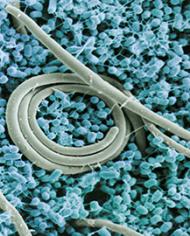
ARS scientists in collaboration with researchers at the University of Georgia, developed a series of algorithms capable of effectively predicting the prevalence of Salmonella.
Mar 03, 2022 -
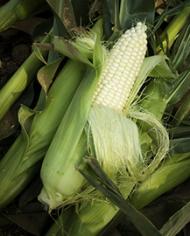
A team of researchers and their partners have found another way to conserve water: late planted corn.
Mar 03, 2022 -
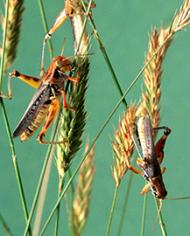
Often viewed as pests, grasshoppers may have a larger environmental role to play.
Mar 02, 2022 -
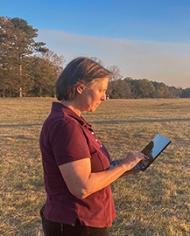
ARS researchers have developed a unique mobile system that assesses and maps out soil carbon to a depth of 30 centimeters (the plow layer) – all in real time.
Mar 01, 2022 -

ARS scientists are investigating ways to ensure agriculture can produce renewable fuels that will help diminish our carbon footprint.
Feb 28, 2022 -
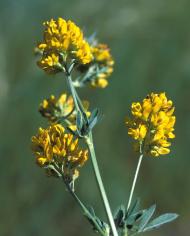
Beef producers in the western United States have been searching for alternatives to nitrogen-rich fertilizers .
Feb 28, 2022 -

ARS scientists are investigating ways to ensure agriculture can produce renewable fuels that will help diminish our carbon footprint.
Feb 28, 2022 -
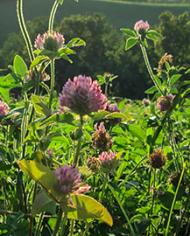
Red clover in cattle diets could give them additional defense against fescue toxicosis, caused by the consumption of fungus-infected tall fescue when grazing.
Feb 28, 2022 -
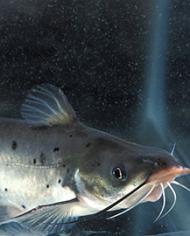
ARS researchers and Villanova University researchers looked at compounds called pyranopyrans that have significant antibacterial properties against a certain fish pathogen.
Feb 25, 2022 -
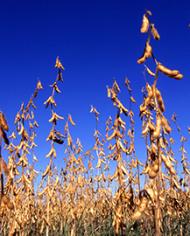
ARS scientists studied how high-oleic soybean oil--an oil with high amounts of monounsaturated fats--modifies LDL cholesterol in comparison to other oils.
Feb 25, 2022 -
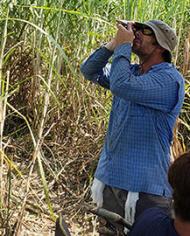
A new variety of sugarcane has high fiber content, excellent regrowth ability, high stalk population, cold tolerance, disease resistance, and excellent biomass yield.
Feb 25, 2022 -
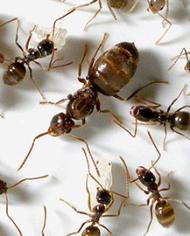
ARS scientists and the Foundation for the Study of Invasive Species in Argentina, conducted research to further understand tawny crazy ant behavior.
Feb 24, 2022 -
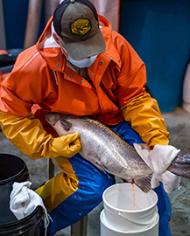
An improved genome reference sequence for the North American Atlantic salmon and the first DNA chip enables the use of genomic information in breeding strategies.
Feb 22, 2022 -

An improved genome reference sequence for the North American Atlantic salmon and the first DNA chip enables the use of genomic information in breeding strategies.
Feb 22, 2022 -
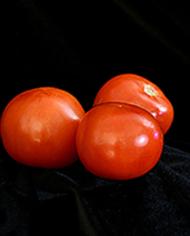
Researchers developed a cool new intervention technology involving the use of cold plasma and hydrogen peroxide aerosols.
Feb 22, 2022 -
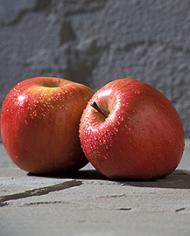
Researchers found that specific fruits and vegetables rich in plant compounds known as flavonoids may significantly reduce the risk of Alzheimer’s dementia.
Feb 17, 2022 -
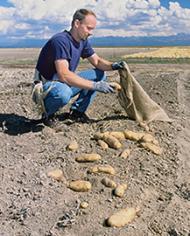
ARS scientists created a new potato variety with greater yields and better processing qualities, especially for making chips and fries.
Feb 16, 2022 -
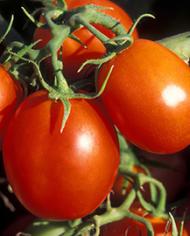
Combining the biofumigant with an herbicide seems to curb infestations of purple nutsedge as well as reduce nematodes and the tomato wilt bacterium.
Feb 14, 2022 -
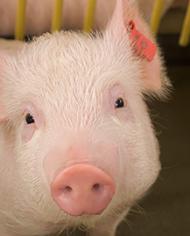
ARS scientists at the Plum Island National Animal Disease Research Center are preparing countermeasures in case of the arrival of African Swine Fever in the United States.
Feb 14, 2022 -
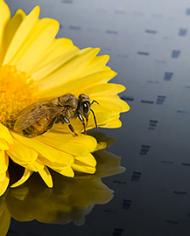
Researchers with the ARS Honey Bee Breeding, Genetics, and Physiology Research Unit have identified a region of the honey bee genome linked to reduced colony defensiveness.
Feb 11, 2022 -
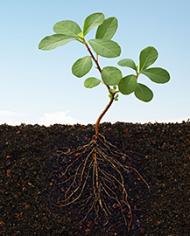
A new protocol addresses sources of variability and uncertainty in measuring microbial community composition and its connection with agricultural management and changing climate.
Feb 10, 2022 -

Scientists conducted research on how farm management practices could maximize elephant grass’s utility as a bioethanol feedstock.
Jan 28, 2022 -
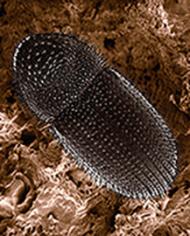
ARS scientists studied Puerto Rican fungal strains as possible biological control agents for managing the coffee berry borer in an environmentally sustainable manner.
Jan 28, 2022 -
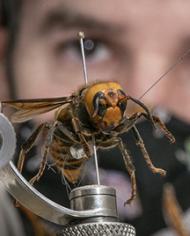
ARS is working with the Washington State Departments of Health and Agriculture and USDA’s Animal and Plant Health Inspection Service to prevent the northern giant hornet, formerly known as Asian giant hornet, from becoming established in the United States.
Aug 25, 2021 -
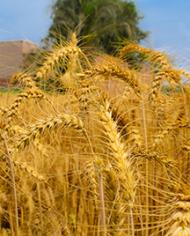
ARS has been a central player in the Wheat Productivity Enhancement Program for Pakistan, a decade-long international collaboration.
Mar 24, 2021 -
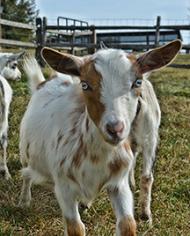
The USDA-USAID Livestock Improvement Project is an 8-year international program to enhance genetic gains made in local goat populations.
Mar 24, 2021 -
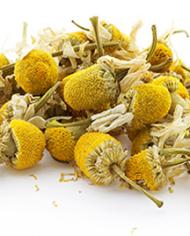
ARS scientists conducted a study of essential oil from dried pineapple weed for repelling mosquitoes.
Apr 07, 2021 -
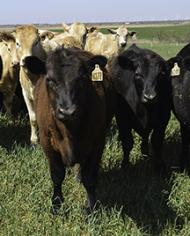
Researchers discovered that sending cattle to feedlots earlier than the traditional timing of October may provide a two- fold benefit.
Apr 05, 2021 -

Scientists are looking into how they can improve upon the grass cattle put in their bellies and you put in your tank.
Apr 05, 2021 -
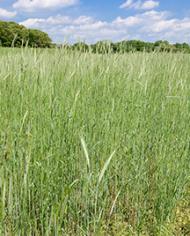
Planting cover crops and not tilling the soil improves the soil’s carbon balance with minimal impact on the water balance.
Apr 05, 2021 -
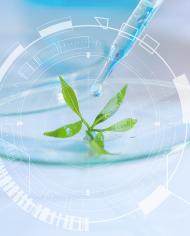
Highlighting the achievements of Amy Vincent, Clarice Coyne, Carl Bernacchi, Atanu Biswas, Michele Reba and the ARS stem rust team
Apr 02, 2021 -
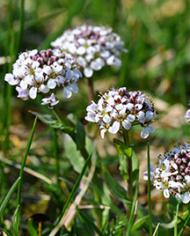
Researchers determined that winter camelina and pennycress are effective in reducing excess nitrogen and preventing its escape from farmland.
Mar 31, 2021 -
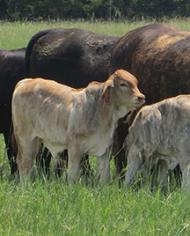
Promoting “manuresheds” to combat nutrient pollution while taking advantage of manure’s productive uses.
Mar 25, 2021 -
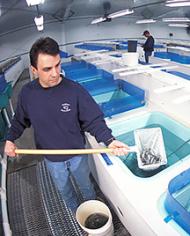
Researchers developed an improved line of trout germplasm that the nation’s second largest commercial egg retailer is selling to trout farmers.
Mar 25, 2021 -
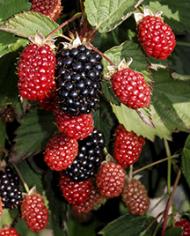
ARS researchers released two new varieties of blackberry: ‘Twilight’ and ‘Hall’s Beauty.’
Mar 25, 2021 -
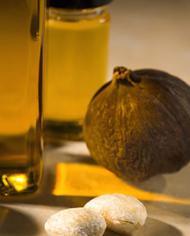
ARS scientists successfully used tung oil as the starting material for a new additive to improve the performance of diesel fuel.
Mar 25, 2021 -
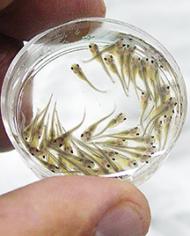
A new fish food made from fly frass is helping fish farmers raise larger, healthier catfish.
Mar 25, 2021 -
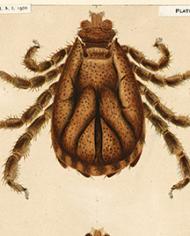
Researchers are bringing high-tech tools to the fight against cattle fever ticks along the U.S.-Mexico border and in Puerto Rico.
Mar 25, 2021 -
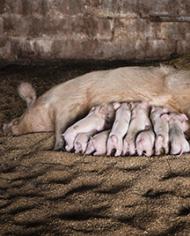
Scientists recently looked at the temperature preferences of sows, with an eye toward keeping them more comfortable before and during pregnancy.
Mar 25, 2021 -
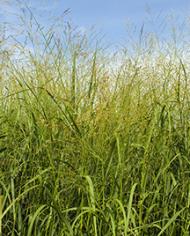
Intercropping perennial herbaceous crops with trees successfully increased organic soil carbon levels.
Mar 24, 2021 -

A progressive resistance strength training regimen may improve muscle strength and muscle fatigue in older adults with limited mobility.
Mar 23, 2021 -

Blood levels of LDL cholesterol were significantly lower in women who consumed stearic and oleic acid diets than in consuming a palmitic acid diet.
Mar 23, 2021 -
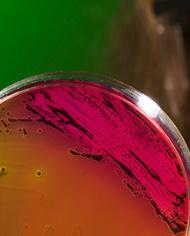
Certain plant-based compounds and probiotic cultures are effective for keeping poultry and eggs free from harmful bacteria.
Mar 23, 2021 -
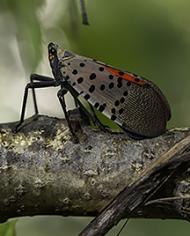
A team of ARS scientists in cooperation with Pacific Biosciences published the first genome of the invasive spotted lanternfly.
Mar 23, 2021 -
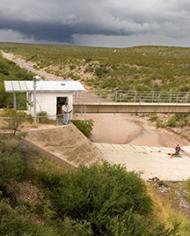
ARS researchers helped the United Kingdom improve the accuracy of its widely used weather-forecasting models.
Mar 22, 2021 -
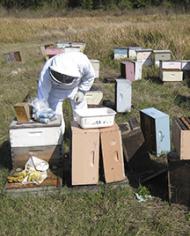
Putting honey bees into indoor cold storage in October rather than November increases their chances of surviving the winter.
Mar 22, 2021 -
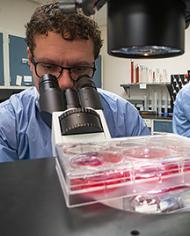
ARS scientists have made two important advancements against African swine fever virus which causes a lethal disease in swine.
Mar 16, 2021 -

Learn how scientists are finding alternatives to chemical insecticides to control flies.
Mar 11, 2021 -
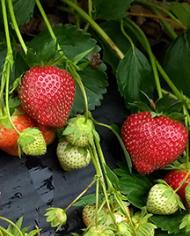
Learn about the Keepsake strawberry developed by ARS
Mar 11, 2021 -
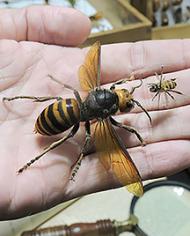
ARS is helping lead the mapping of the first complete genome of the Asian giant hornet.
Mar 11, 2021 -
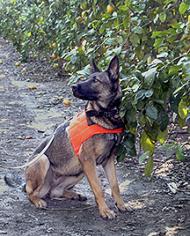
Scientists are using dogs to sniff out citrus orchards for the devastating pathogen HBL, also known as Citrus Greening.
Mar 11, 2021




